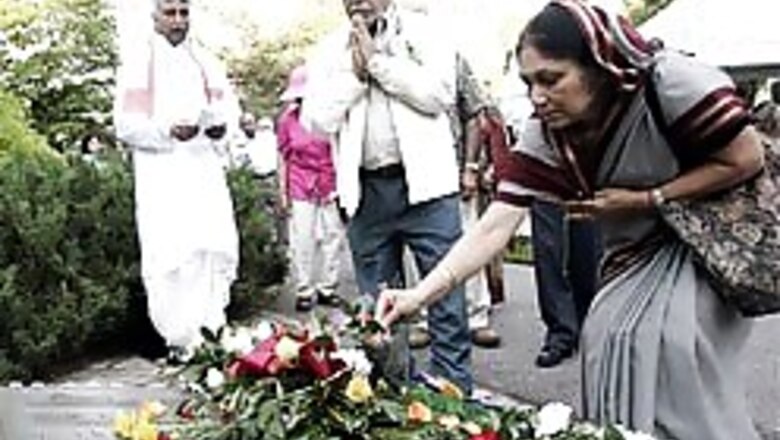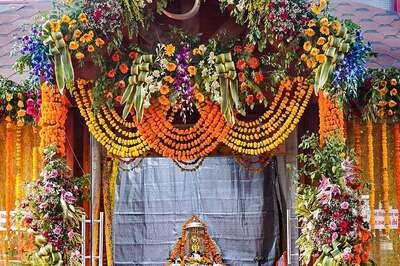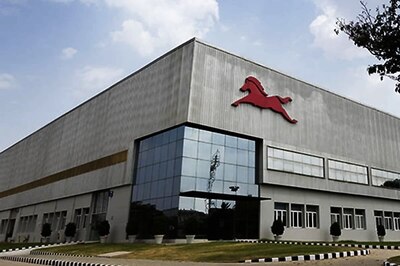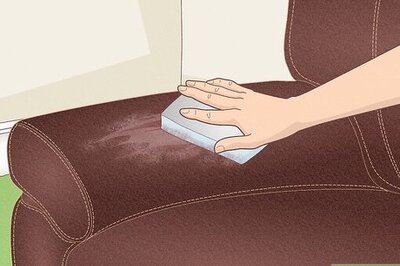
views
Toronto: The long-awaited Air India inquiry opened on Monday with emotional testimony from families of some of the 329 people killed in a plane bombing 21 years ago - Canada's worst case of mass murder.
Mark Freiman, chief counsel of the probe, said testimony from relatives and rescue personnel involved in the 1985 crash of an Air India passenger jet off Ireland would be excruciatingly painful for the families, but would put a human face on terrorism.
''It takes a great deal of courage to speak in a public forum about matters that reach into the innermost parts of one's being,'' Freiman told the opening of the commission in Ottawa.
Air India Flight 182 from Toronto to London, originating in Vancouver, exploded and crashed off Ireland on June 23, 1985. The flight was brought down by a bomb believed to have been planted by Sikh extremists campaigning for a homeland in northern India. The dead included 280 Canadian citizens, most of them of Indian origin or descent.
Retired Supreme Court Justice John Major is heading up the probe after the country's longest and costliest investigation and a two-year trial ended in acquittals in March 2005.
Relatives of the victims were devastated by the verdicts and demanded the inquiry.
During the trial, the prosecution claimed the bombings were acts of revenge by Sikh separatists in retaliation for a deadly 1984 raid by Indian forces on the Golden Temple at Amritsar, the holiest site of their religion. Two Indian-born Sikhs, Ripudaman Singh Malik and Ajaib Singh Bagri, were acquitted when Supreme Court Justice Ian Josephson ruled there was not enough evidence against them.
A third man in the case, alleged bomb-maker Inderjit Singh Reyat, pleaded guilty to one count of manslaughter and was sentenced to five years in jail in 2003 after a plea bargain in which he was supposed to testify against Malik and Bagri. Instead, he infuriated the court when he took the stand and claimed to know nothing. He now faces a perjury charge in a trial due to begin next May.
While the commission has wide powers of subpoena, it cannot find guilt nor make any award.
Major has said the probe is the only route left to find out why the bombing was not prevented, why intelligence and police agencies bungled the investigation and how to head off future terrorist attacks against Canadian citizens.
Major has set aside the first three weeks of hearings for family members who want to speak about their long quest for justice. The first witness was Bal Gupta, a Toronto-area engineer who lost his wife in the bombing and has campaigned for years for just this kind of inquiry.
''The facts are very grim,'' Gupta said. ''Twenty-nine families were completely wiped out; 32 families were left alone with only one spouse; eight couples lost all of their children and two children lost both of their parents.''
Gupta, wiping tears away, talked about how he identified the body of his wife and those of friends and their children at a makeshift morgue. He said he and his late wife, Ramwati, had been married for more than 20 years and had two sons.
''My son and I spent a few minutes of prayer alone, with the body of my wife,'' he said, covering his eyes with his hands. ''The perpetrators of their heinous crime, conceived and executed in Canada and on Canadians, are still roaming free to commit more terrorist attacks.''
Major intends to examine the turf wars between the Royal Canadian Mounted Police and the Canadian Security Intelligence Service, the country's spy agency, which hampered the initial investigation of the bombing.
He will also consider whether three-judge panels should preside at high-profile terrorist trials, rather than the usual single judge. He will examine broader issues still relevant today, such as airline security and terrorist financing.

















Comments
0 comment